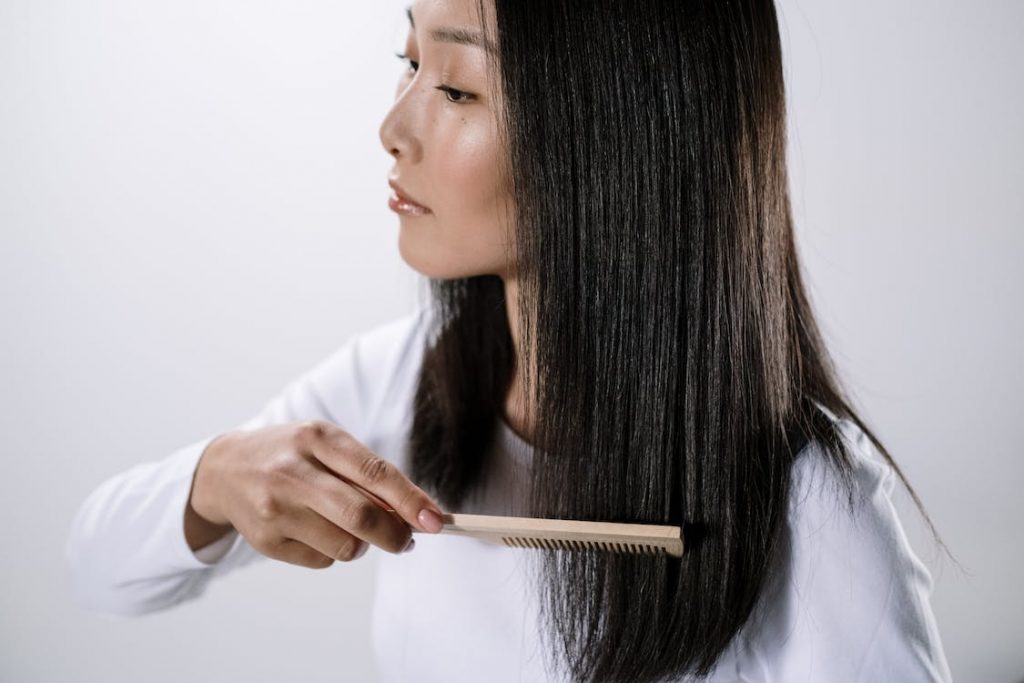
Hair loss can be a distressing experience for women, impacting self-esteem and overall well-being. While it’s normal to shed some hair daily, excessive hair loss can be a cause for concern. Fortunately, there are various strategies and lifestyle changes that can help combat hair loss in women. Here, we’ll explore effective ways to address and prevent hair loss.
Identify the Underlying Cause:
Understanding the root cause of hair loss is crucial for developing an effective strategy. Common factors include hormonal changes, nutritional deficiencies, stress, and hereditary factors. Consulting with a healthcare professional or a dermatologist can help identify the specific cause and guide you towards targeted solutions.
Maintain a Healthy Diet:
A balanced diet plays a pivotal role in preventing hair loss. Ensure your meals include a variety of nutrients such as iron, zinc, vitamins A and E, and omega-3 fatty acids. Foods like leafy greens, fish, nuts, and fruits contribute to overall hair health. Consider supplements if your diet lacks essential nutrients.
Manage Stress:
Chronic stress is a known contributor to hair loss. Incorporate stress-reduction techniques into your daily routine, such as meditation, yoga, or deep breathing exercises. Adequate sleep is also vital for overall well-being, including the health of your hair.
Choose Gentle Hair Care Practices:
Harsh hair care practices can contribute to hair breakage and loss. Opt for sulfate-free, gentle shampoos and conditioners. Avoid excessive heat styling and tight hairstyles that can strain the hair follicles. Allow your hair to air dry whenever possible and use wide-toothed combs to minimize breakage.
Regular Scalp Massage:
Massaging your scalp stimulates blood circulation, promoting hair growth. Use natural oils such as coconut or jojoba oil and gently massage your scalp in circular motions. This not only nourishes the hair follicles but also helps to relax and reduce stress.
Hormonal Balance:
Hormonal imbalances, such as those caused by conditions like polycystic ovary syndrome (PCOS), can contribute to hair loss. Consult with a healthcare professional to address hormonal issues through medication or lifestyle adjustments.
Prescription Medications:
Certain prescription medications, such as minoxidil and finasteride, have shown effectiveness in promoting hair regrowth. These medications should be used under the guidance of a healthcare professional, as they may have side effects.
PRP Therapy and Laser Treatments:
Platelet-rich plasma (PRP) therapy involves injecting your blood’s concentrated platelets into the scalp, promoting hair growth. Laser treatments, such as low-level laser therapy (LLLT), can also stimulate hair follicles. These treatments should be administered by qualified professionals.
Conclusion:
Addressing hair loss in women requires a holistic approach that considers lifestyle, nutrition, and overall well-being. By identifying the underlying causes and adopting healthy practices, you can significantly reduce and even reverse hair loss. Remember to consult with healthcare professionals for personalized advice based on your unique situation. Taking proactive steps and maintaining a consistent routine can contribute to healthier, fuller hair and boost your confidence in the process.
